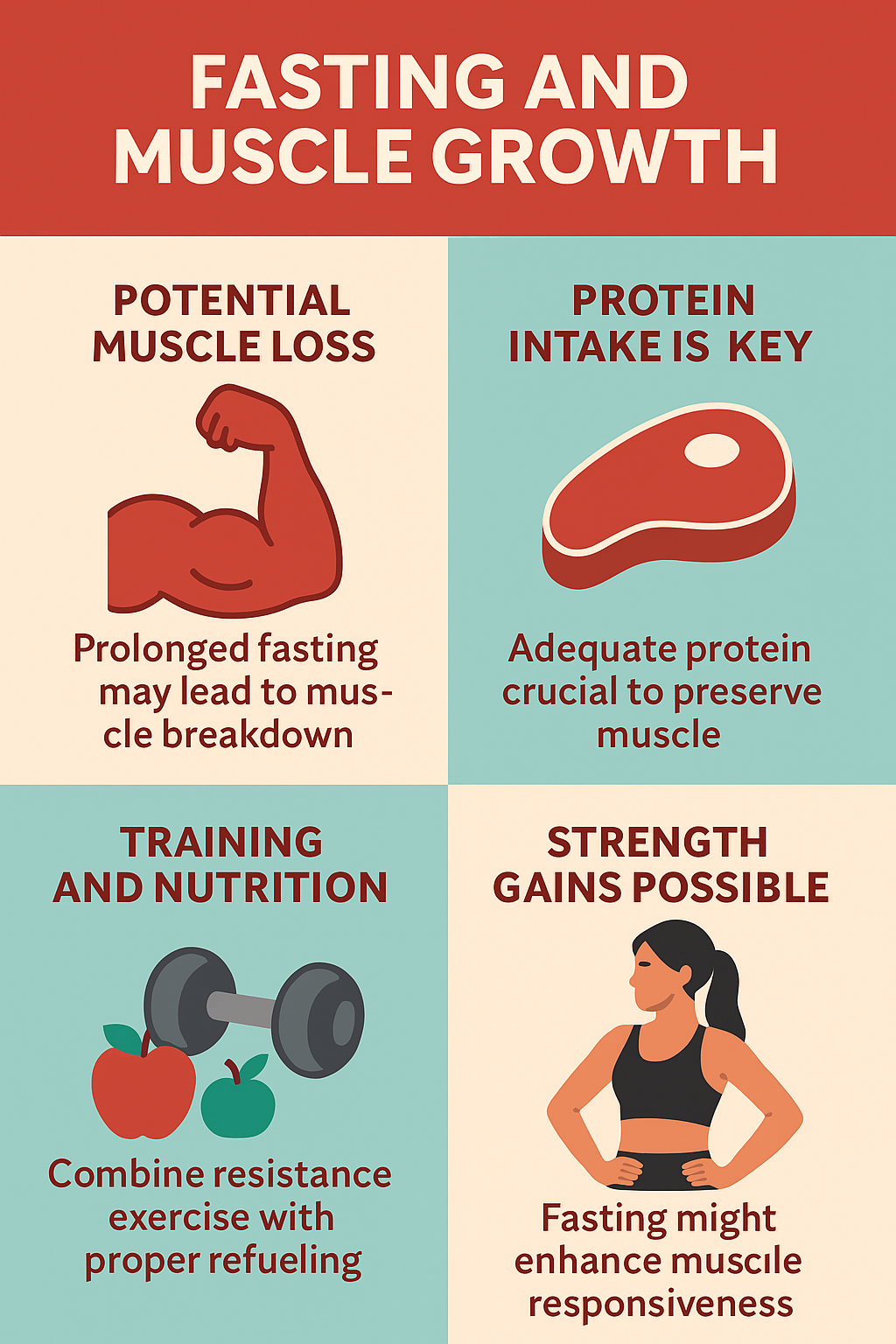Busting the Myth: Fasting, Muscle Growth And Strength
Fasting and muscle growth are not as interconnected as popular belief suggests
There is a common myth that fasting leads to loss of strength, which is not the case
The body is designed to store excess calories in the form of glycogen for future use
During a fasting period, the body utilises stored glycogen for energy, thus, strength levels remain constant
The human body operates an energy saving mode during fasting, conserving strength and energy
The relationship between strength and muscle mass is not linear; strength does not proportional to muscle size
Proper training, including resistance and strength training, plays the primary role in strength gain, not abundant eating
The concept of "fasting" in personal training is more nuanced and complex than typically perceived
Does Fasting Really Make You Weaker?
Get your head out of the “carb sand,” mates. The old tale that fasting causes muscle loss and weakens strength is about as outdated as floppy discs. Truth is, the human body is a clever machine—built for survival, not meltdown. When you're fasting, your body taps into glycogen stores, not muscle, to fuel movement and preserve energy. Your strength doesn’t suddenly vanish because you skipped breakfast.
Fasting and Strength: What the Science Actually Says
Here’s what actually happens: when you fast, the body enters a glycogen-burning phase. This fuel—stored in your liver and muscles—is more than enough to power strength workouts, especially during shorter fasts (12–18 hours). On top of that, the body shifts into a conservation mode, preserving strength while prioritising essential energy output. So, no—you’re not going to crumble under a barbell just because it’s been a few hours since your last meal.
Muscle Size ≠ Muscle Strength
Don’t let the big biceps fool you—muscle mass isn’t the same as muscle strength. Strength depends just as much on nervous system efficiency, movement technique, and progressive overload as it does on size. Ever seen a lean fighter toss around a heavier opponent? That’s proof enough. The real gains come from smart training, not constant feeding.
Can You Build Muscle While Fasting?
Strength Training Doesn’t Require Constant Eating
Let’s ditch the idea that you need to be eating all day to gain strength. It’s training—not eating—that signals your body to adapt. Yes, adequate protein and recovery matter, but you can absolutely maintain, and even build, muscle while incorporating intermittent or circadian fasting protocols—as long as you're hitting your macros during the eating window and training smart.
Strategic Fasting Supports Performance and Fat Loss
When done properly, fasting can lower insulin levels, boost growth hormone release, and increase fat metabolism—creating the ideal hormonal environment for strength gains and body composition improvements. Combine that with consistent resistance training, and you're onto a winning formula that supports lean muscle mass without the fluff.
From a Personal Trainer’s Perspective: Train Smart, Not Just Hard
Fasting doesn’t make you weak—it just requires structure and self-awareness. From my view on the gym floor, those who manage fasting with purpose and pair it with a progressive training plan often enjoy:
Better energy balance
Reduced body fat
Improved focus during workouts
Greater respect for food and recovery
And for the record—yes, you can fast and lift heavy. Just be smart about your meal timing, hydration, and protein intake.

How Long Can You Fast Without Losing Muscle?
Short-term fasts (12–20 hours) are generally safe and won't cause muscle loss, especially if:
You’re hitting daily protein targets
You’re engaging in resistance training
You’re staying hydrated
You’re getting enough calories during your eating window
Longer fasts (24+ hours) should be approached cautiously and typically aren't necessary for strength-based goals unless guided by a coach or medical professional.
Best Way to Train While Fasting
If you’re lifting while fasted:
Stick to compound movements (squats, deadlifts, rows)
Train during the final hour of your fast, then break it with a protein-rich meal
Keep hydration up—electrolytes and water are key
Use BCAAs or black coffee if you need an extra performance push
Post-workout meals should include protein and carbs to aid muscle recovery and glycogen replenishment.
Fasting and Strength: What Actually Matters Most
At the end of the day, your gains depend on:
Consistent training
Adequate protein and calorie intake
Proper recovery and sleep
A well-timed and balanced approach to eating—fasting or not
It’s about balance, structure, and goals, not extremes. Want to lose fat and get stronger? Fasting might help. Want to bulk and gain mass? Use fasting periods wisely or keep them minimal. It’s all about your individual training needs.
